Looking for a way to formalize your caregiving services agreement? Crafting a clear and concise letter can help ensure that both parties are on the same page regarding responsibilities and expectations. By laying out the details in a structured manner, you create a solid foundation for trust and reliability in the caregiving relationship. Dive deeper into our comprehensive guide to discover how to write an effective caregiving services agreement letter that meets your needs!
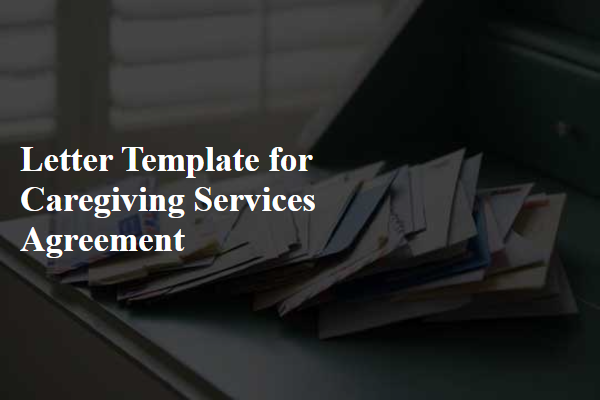
Scope of Services
The caregiving services agreement encompasses a comprehensive scope tailored to meet the unique needs of the client. Services include personal care assistance, such as bathing, grooming, and dressing, aimed at enhancing daily living activities. Medication management involves monitoring and administering prescribed medications to ensure adherence to health regimens. Additionally, companionship services provide emotional support and engagement through social interactions and planned activities, fostering mental well-being. Transportation services may be offered for medical appointments or social outings, ensuring clients remain connected to their community. Meal preparation focuses on nutritious meal planning, catering to dietary restrictions, and personal preferences, promoting overall health. Regular assessments of client needs will be scheduled, ensuring the caregiving plan adapts as required, enhancing the quality of life for the individual receiving care.
Payment Terms
Caregiving services agreements usually outline essential details regarding payment terms to ensure clarity and mutual understanding between the caregiver and the client. Payment terms may include specific rates, whether hourly or flat fees, along with payment schedules such as weekly, bi-weekly, or monthly intervals. Clients might also need to know the acceptable payment methods, including checks, bank transfers, or digital payment platforms like PayPal or Venmo. In addition, late payment penalties or the process for handling adjustments, such as extra shifts or additional services, must be clearly stated to prevent disputes. Furthermore, services for particular needs, like specialized care for Alzheimer's or postoperative recovery, might carry different fees requiring explicit mention to avoid misunderstandings.
Duration and Termination
The duration of the caregiving services agreement typically spans an initial period of six months, commencing on the effective date recorded in the contract. Both parties retain the right to extend this duration through mutual written consent, facilitating flexibility in ongoing care needs. Termination of the agreement can occur under several circumstances, including a written notice of 30 days from either party, significant breach of contract terms, or if the caregiver fails to meet the standards established by state regulations for in-home care. Each termination scenario aims to ensure a smooth transition, prioritizing the wellbeing of individuals receiving care while adhering to legal obligations.
Confidentiality and Privacy
Confidentiality and privacy in caregiving services are crucial for maintaining trust between caregivers and clients. Caregivers must safeguard sensitive information, including medical history, personal identification details, and financial records, ensuring compliance with regulations like HIPAA (Health Insurance Portability and Accountability Act) in the United States. Permission must be obtained before sharing any information with third parties or family members. Additionally, all documentation should be securely stored, utilizing locked cabinets or encrypted digital files, reducing the risk of unauthorized access. Training on confidentiality practices should be regularly provided to caregivers, promoting diligence in protecting client privacy. Any breaches of confidentiality can lead to legal ramifications and loss of client trust, highlighting the importance of strict adherence to privacy policies.
Responsibilities and Liability
Caregiving services agreement outlines essential responsibilities and liability aspects between caregivers and clients. Responsibilities include daily care tasks such as medication management, personal hygiene assistance, meal preparation, and transportation to medical appointments. Caregivers must also monitor clients' health conditions, document any changes, and communicate with healthcare professionals. Liability involves legal responsibilities regarding any harm or injury that may occur due to negligence, ensuring compliance with state regulations like the Health Insurance Portability and Accountability Act (HIPAA) for patient confidentiality. Clarity on insurance requirements is vital, including malpractice insurance coverage to protect both caregivers and clients from potential claims. Proper agreements emphasize the importance of maintaining a safe environment, adhering to confidentiality policies, and establishing clear protocols for emergencies in the caregiving relationship.
Letter Template For Caregiving Services Agreement Samples
Letter template of caregiving services arrangement for disabled individuals
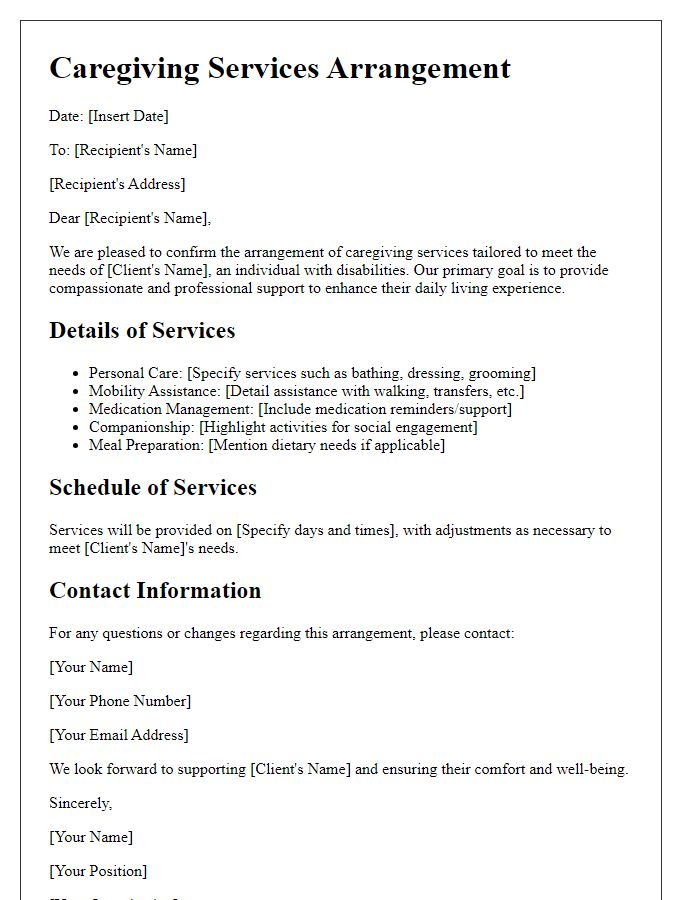
Letter template of caregiving services agreement for personal assistance
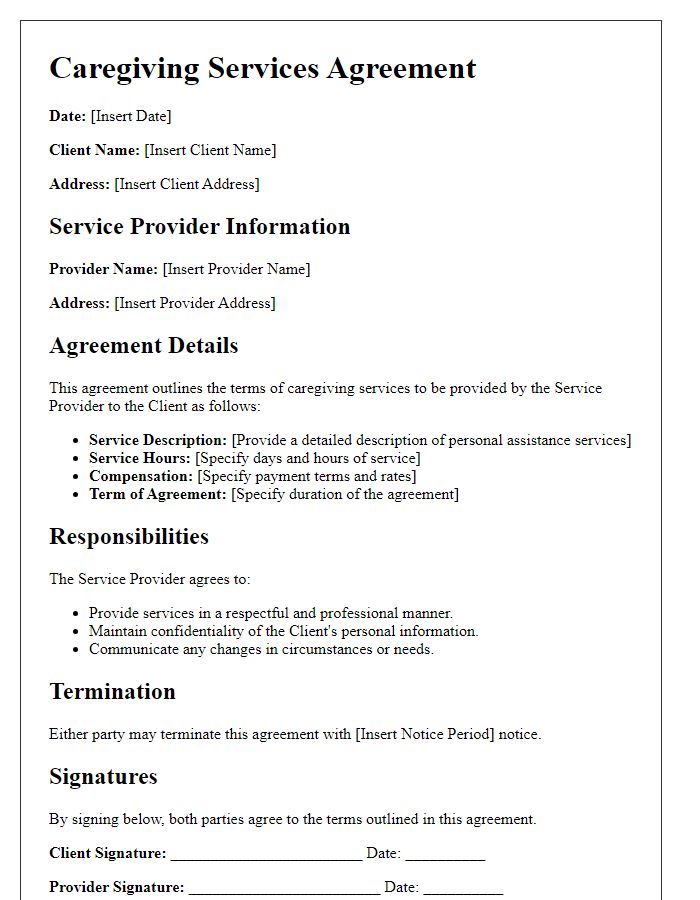
Letter template of caregiving services memorandum for childcare assistance
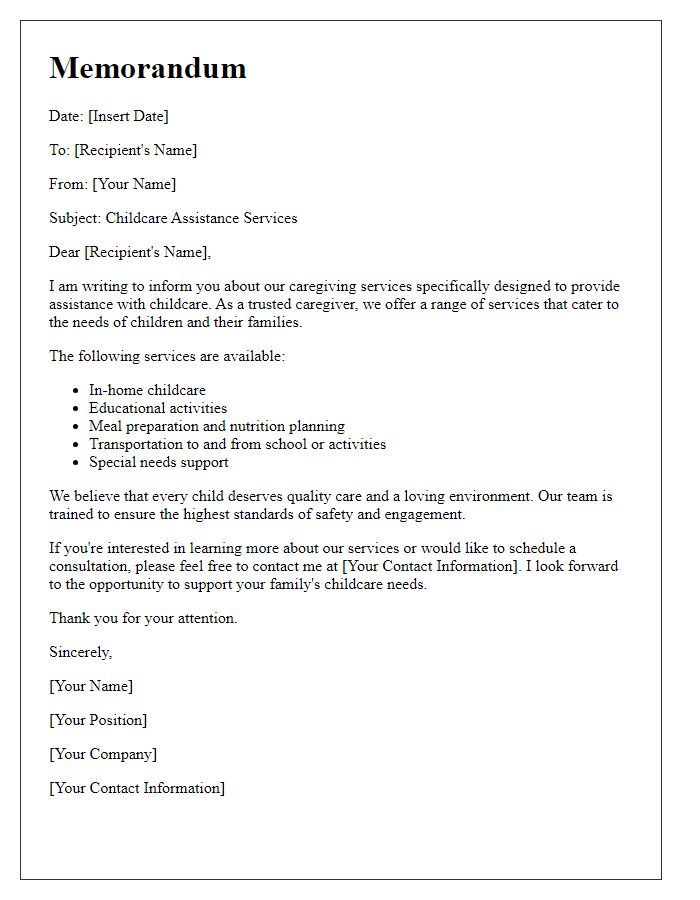

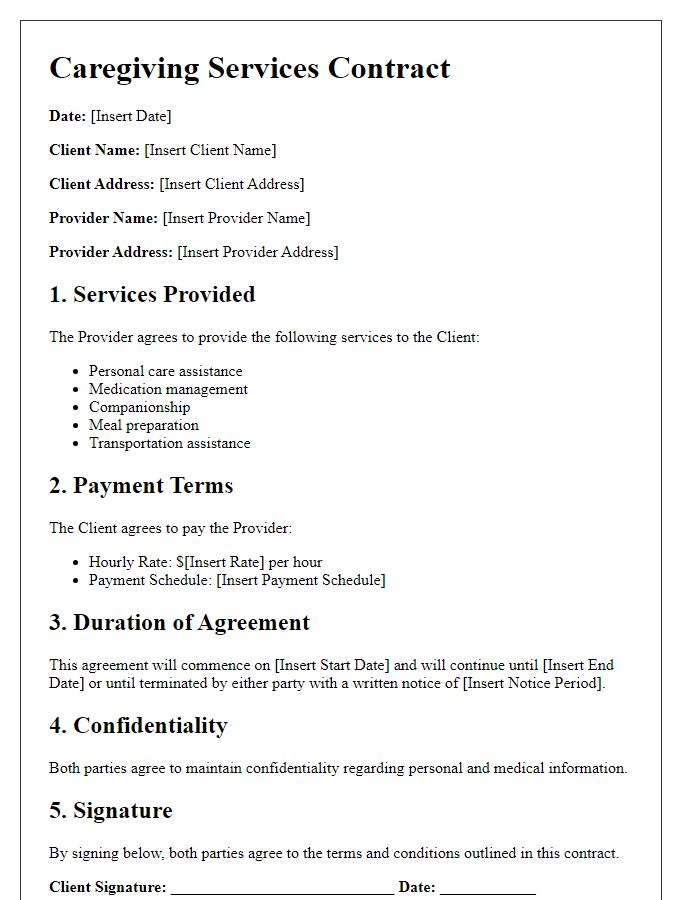
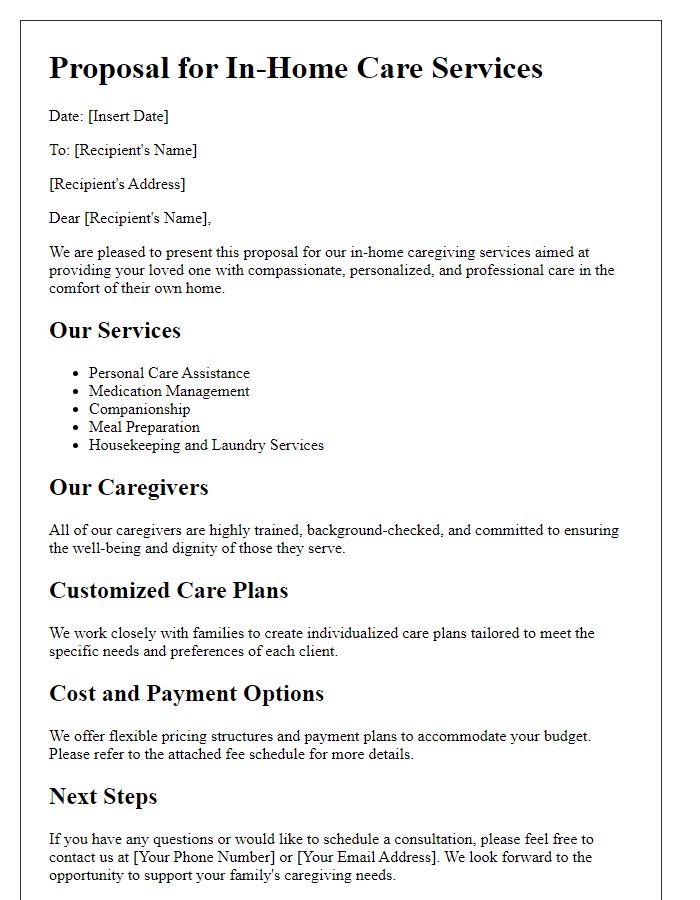
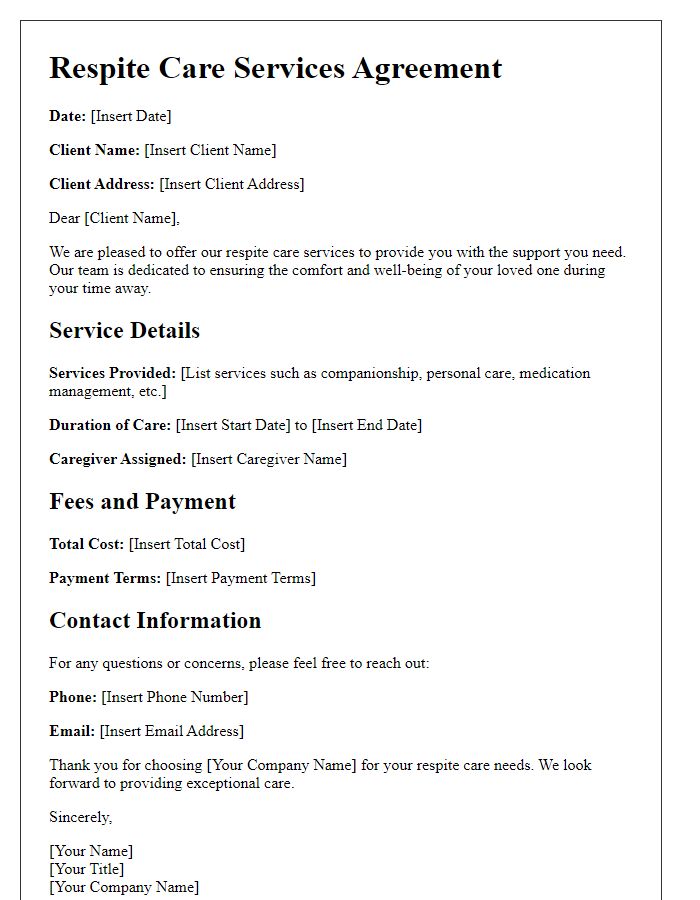
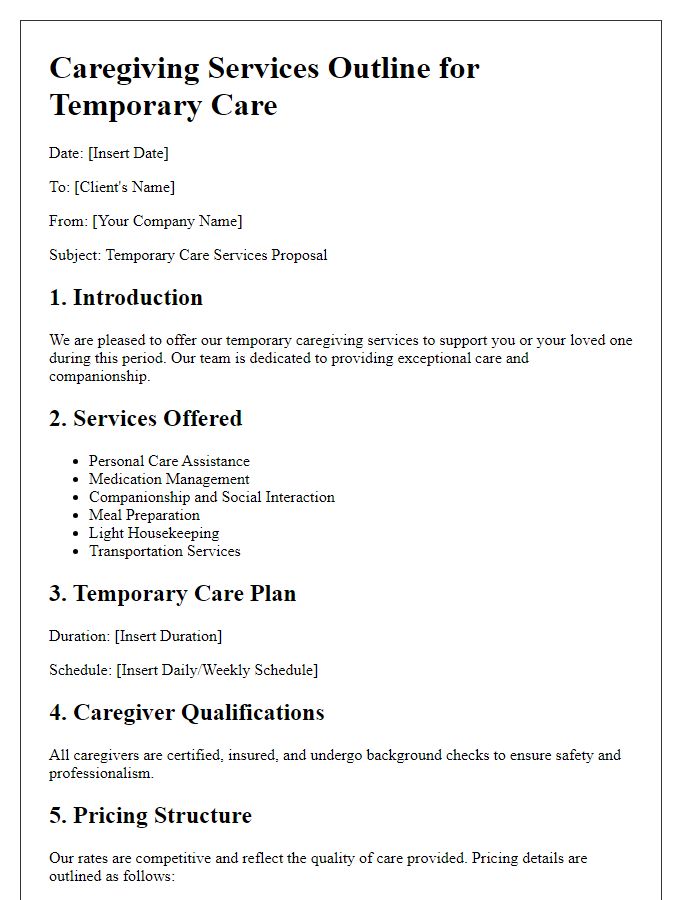
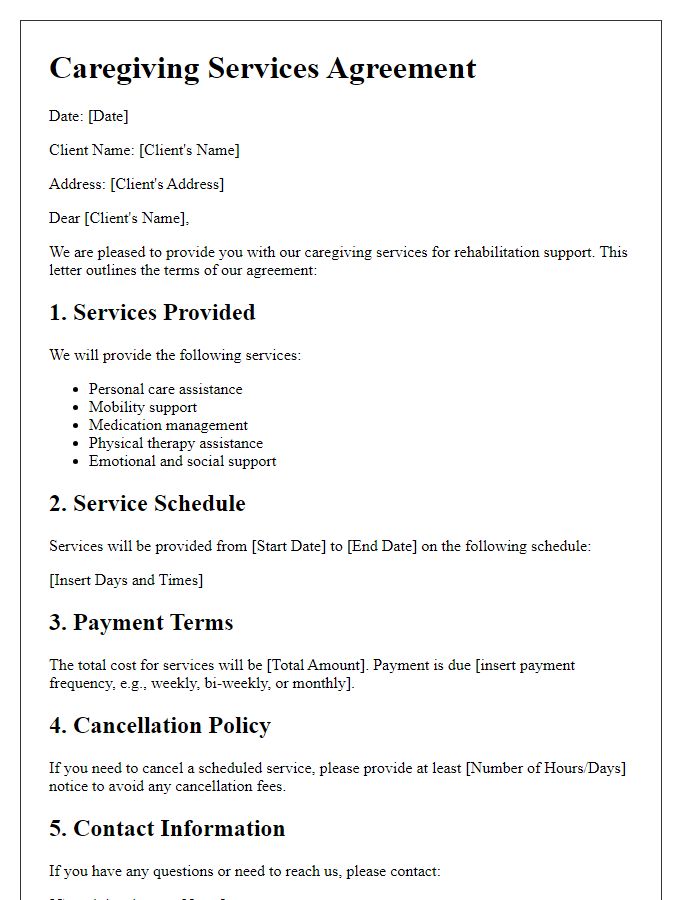
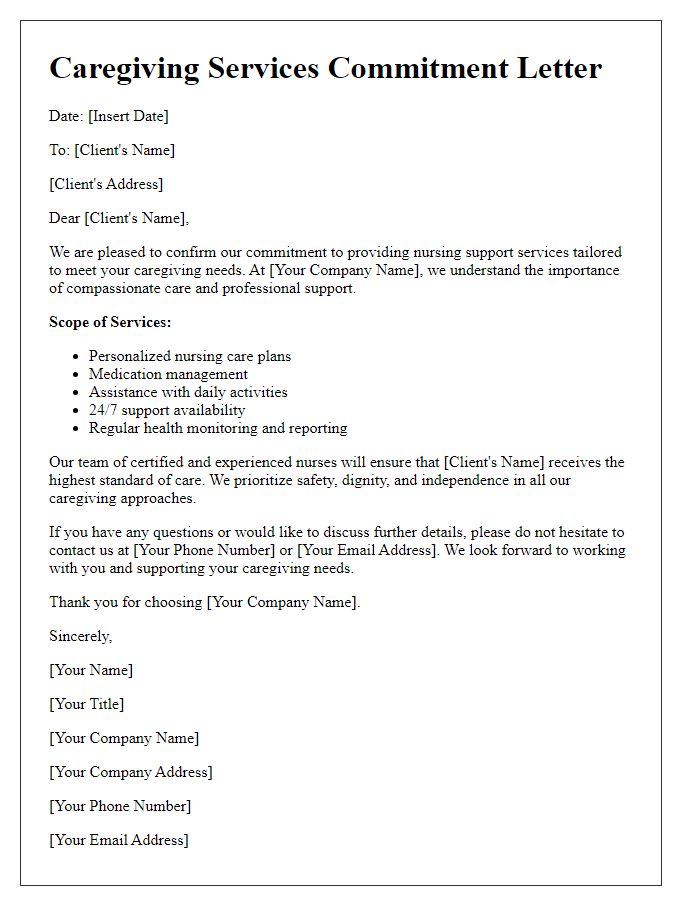
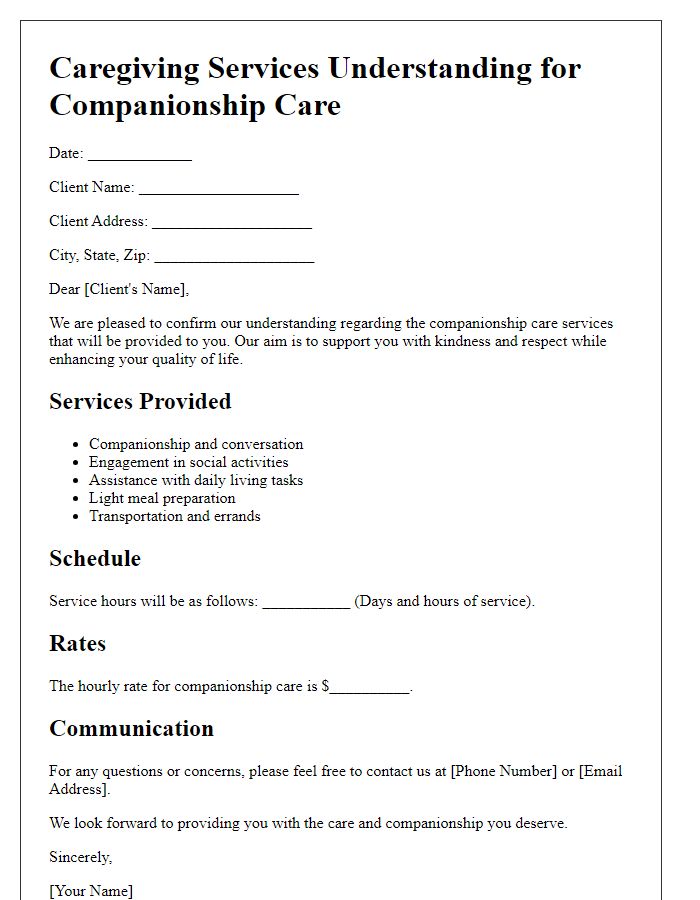


Comments